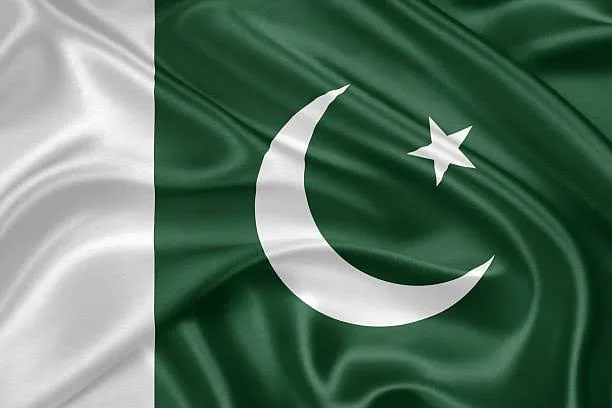For the new governments at federal and provincial levels, top priority challenges are sapping economy, political instability, and cross-border terrorist attacks. Each of these issues is decades old and of phenomenal magnitude. Cumulatively, these have stretched the societal fabric to a near rupture point. Recovering from these fault lines calls for unwavering national resolve and a whole-of–state and whole-of-society approach.
The silver lining is that the people came out in numbers to vote in the recent elections. This indicates that the general public is genuinely interested in converting these challenges into opportunities. Moreover, all those who got elected, are keen to quickly become part of the evolving political system rather than sit on the fence. The transition from caretaker to newly mandated governments has been smoother and faster than even the most optimistic expectations. The rapid flow of felicitation messages from important capitals has strengthened the aura of international recognition of the outcome of the elections.
Some of the international economic watchdogs have recently upgraded a couple of Pakistan’s economic ratings. Reportedly, Euro-bonds have jumped to a new high value. This has sparked confidence and optimism among the well-wishers of the country. The evolving situation augurs well for Pakistan. The negotiations with the IMF have started, and the staff-level agreement is in the offing. One may safely hope that the country is likely to move forward on the road to progress and development. So far, so good!
Nonetheless, the platter of the new federal government is full. It won’t be easy-going. The starting point for the government is a phenomenal budget deficit of Rs8.5 trillion, marginal foreign exchange reserves (around US$ 10 billion), and very high interest rates (22 percent). The trade deficit for the ongoing fiscal year is nearing US$15 b. During January, the Sensitive Points index clocked an inflation rate of 32.6 % on a year-on-year basis. The tax-to-GDP ratio is around 10 percent, one of the lowest in the region. The projected GDP growth for fiscal year 2023-24 is around 2-3%.
Net debt liabilities, domestic and external, are nearing $285 b or Rs 80 trillion. External debt financing over one year requires about US $25 billion. There is a need for a paradigm shift in debt management practices. New avenues should be explored for debt relief, and debt rescheduling negotiations with the creditors should commence at the earliest. We need to enhance our exports. However, in most of the sectors, our industry is unable to compete internationally due to continuous hikes in electricity tariffs, gas prices, and indirect taxes. These issues need urgent attention.
Moreover, there is a dire need to deliver long-awaited relief to the people, whose patience is depleting rapidly due to an unprecedented reduction in their usual household-related purchasing power. To make matters worse, the IMF is likely to come in the way of any meaningful relief that the government may plan for the low-income segments of society.
Nevertheless, the government has options to mobilise the resources. Failure to run some of the State Owned Enterprises (SOEs) efficiently has stressed the country’s public finances to a breaking point. Selling off the top 10 loss-making SOEs and cutting the inefficiencies in the power sector alone could provide enough fiscal space to alleviate some of the major sufferings of the people. The situation would further ease if the government puts through requisite tax reforms to broaden the tax base and eliminate the discretionary role of tax collectors.
During 2023, there were around 600 terrorist attacks in Pakistan. The origin of most of these attacks has been traced back to Afghanistan; brand-wise most of these attacks were carried out by Tehreek-e-Taliban Pakistan (TTP), duly facilitated by very powerful terrorist outfits based in Afghanistan. Besides combating the terrorists through its law enforcers, Pakistan has been exploring other means to reach a negotiated settlement with the TTP. Reportedly, the Afghan ruling coalition has, once again, urged the TTP to engage in discussions with Pakistan to de-escalate tensions. The new government should capitalise on this opportunity. It should also make a concerted effort to choke the logistics and restrict the movement of terrorist operatives from and to Afghanistan.
To cool down the tempers of a divisive society, there is an urgent need for a “Grand National Dialogue.” This dialogue must be meaningful, broad-based, multidisciplinary, and all-inclusive. It should be at academic, practitioner, and expert levels, in a combination of bottom-up as well as top-down formats. To boost the spirit of political inclusivity, there is a need to revive the good old forum of the “All Parties Conference” to swiftly build consensus on evolving challenges to the country.
Effective and workable strategies to resolve all the major challenges facing the country are well known to the national leadership, but political polarisation remains the main hurdle to implementing these solutions. The need of the time is a new vision anchored on open-mindedness, creativity, innovation, and above all, the will to succeed. And together, we can do it!
Author Mr. Khalid Iqbal Air Commodore TI(M) (Retd) is Director National Security at the Centre for Aerospace and Security Studies.


